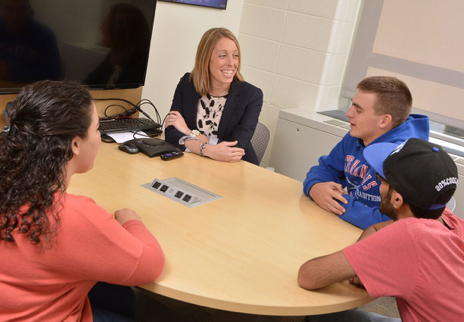Blog Entries
The Key to Getting Picked: Find Your Shtick
“Be YOUnique” and similar nauseating, cheesy phrases that pop up on your Pinterest feed may trigger your gag reflex, but in truth, they are invaluable advice for the professional and academic worlds.
Whether you are interviewing for a job, applying to grad school, or composing your fellowship application, it is imperative that you present yourself in a way that stands apart from other applicants. And although everyone has countless beautiful facets of their personality and skillset, learning to narrow down your uniqueness into a “thesis” for your application will make all the difference to the employer or admissions counselor. Here’s how you do it:
1. Find Your Shtick.
I hate to hear it, and I certainly hate to say it, but good grades from a reputable school simply isn’t enough to get into your dream school or receive that competitive position. Unfortunately, that means you can’t just slap your 3.5 GPA onto your resume and call it a day. The good news is: you are so much more than your grades. I promise you that you do not need to make up any wild passions or whine that you’re a cookie-cutter student.
So ask yourself: what makes you different from the other people in your major? What do you do outside of class? What motivates you to do your work well? What is your favorite way to spend free time? These questions may seem irrelevant to your academic and professional performance, but really they get to the heart of what makes you you. Once you have answers to these questions, see if there is a common theme or thread amongst them. If you can identify where your interests, activities, successes, and motivations all converge, then you’ve found your shtick.
I use the word “shtick” because you really need to boil down all the marvelous uniqueness into one succinct and interesting quality. Your shtick is that aspect of you that a committee of employers will remember when they are leafing through a stack of resumes.
Last fall, I applied to graduate programs to get my master’s in theology. My dream school, Notre Dame, has one of the top programs in the world, and I was dubious that I would get those folks to look twice at my application. But, I realized that I had a shtick. I was a double major in communication and theology, I sang in the choir, spent hours drawing and painting, and I wrote for the newspaper. I coached my peers as a Career Ambassador and worked for the Academic Success Center as a tutor. So yes, I love theology and I’ve done well in my major, but I also love to write, teach, and communicate through art, and my ultimate goal is to meld those skills together and convey theology and moral truths through artistic avenues, especially fiction. There it was. My shtick. And to my great joy, the admissions committee at Notre Dame was excited about my unique goals and interests, and they accepted me.
2. Make it Your Thesis.
Of course, it is not enough to just figure out your shtick. Once you figure out those aspects of you that set you apart, let those aspects be the framework for your entire application or interview. If you are interviewing for a job, and the employer asks “why should I hire you, rather than someone else with similar credentials?” be ready with your shtick. Highlight stories from your life that demonstrate this unique you. Of course, it is encouraged that you bring in many different forms of experience, but be sure to keep returning to your personal theme. Similar to a well-organized essay, formulate your shtick and make it your “thesis,” and let all of your other unique points be in support of that one thesis.
For me, my personal essay, my resume, my academic majors, and my extracurriculars all pointed to the fact that I love theology, beauty, and words, and that my favorite thing to do is use art (drawing, poetry, fiction, etc.) to communicate theology and moral lessons. Not only did I have a unique shtick, but I had lived it out.
Like I said earlier, I am positive that you can do the same. It may not be obvious, but we all have something that drives us—it may just take some self reflection to realize what it is. Look at what you’ve done and decide how you’d sum it up in a sentence or two, and you’ll be on your way.


Follow Career Development Center on Social
CDC on Facebook
Stay up to date with Career Development Center's posts on Facebook.
CDC on LinkedIn
See the latest posts on LinkedIn by the Career Development Center. Follow them on LinkedIn.
CDC on Instagram
See the latest posts on Instagram by Career Development Center.




